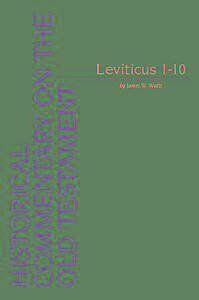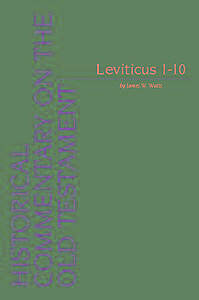
Door een staking bij bpost kan je online bestelling op dit moment iets langer onderweg zijn dan voorzien. Dringend iets nodig? Onze winkels ontvangen jou met open armen!
- Afhalen na 1 uur in een winkel met voorraad
- Gratis thuislevering in België vanaf € 30
- Ruim aanbod met 7 miljoen producten
Door een staking bij bpost kan je online bestelling op dit moment iets langer onderweg zijn dan voorzien. Dringend iets nodig? Onze winkels ontvangen jou met open armen!
- Afhalen na 1 uur in een winkel met voorraad
- Gratis thuislevering in België vanaf € 30
- Ruim aanbod met 7 miljoen producten
Zoeken
€ 74,00
+ 148 punten
Omschrijving
James Watts uses rhetorical analysis for this detailed exposition of Leviticus 1-10. In dialogue with a wide variety of contemporary scholarship on Leviticus, this commentary also engages the history of the book's interpretation and the history of Jewish and Christian ritual practices. Leviticus's rhetoric aimed to persuade ancient Israelites to make offerings to God. It legitimized the monopoly of Aaronide priests over Israel's offerings and over determining correct ritual practice. The priests in turn established the Torah containing Leviticus as the authoritative text of Israel's religion. Rhetorical analysis of Leviticus thus leads to new insights into the role of priests in raising the Pentateuch to the status of scripture and in shaping the biblical canon. It also calls attention to the role of ritual rhetoric in the polities of later Jewish and Christian groups, despite the fact that neither religion makes animal offerings as Leviticus 1-10 mandates.
Specificaties
Betrokkenen
- Auteur(s):
- Uitgeverij:
Inhoud
- Aantal bladzijden:
- 597
- Taal:
- Engels
- Reeks:
Eigenschappen
- Productcode (EAN):
- 9789042929845
- Verschijningsdatum:
- 4/10/2013
- Uitvoering:
- Paperback
- Formaat:
- Trade paperback (VS)
- Afmetingen:
- 163 mm x 239 mm
- Gewicht:
- 952 g

Alleen bij Standaard Boekhandel
+ 148 punten op je klantenkaart van Standaard Boekhandel
Beoordelingen
We publiceren alleen reviews die voldoen aan de voorwaarden voor reviews. Bekijk onze voorwaarden voor reviews.











